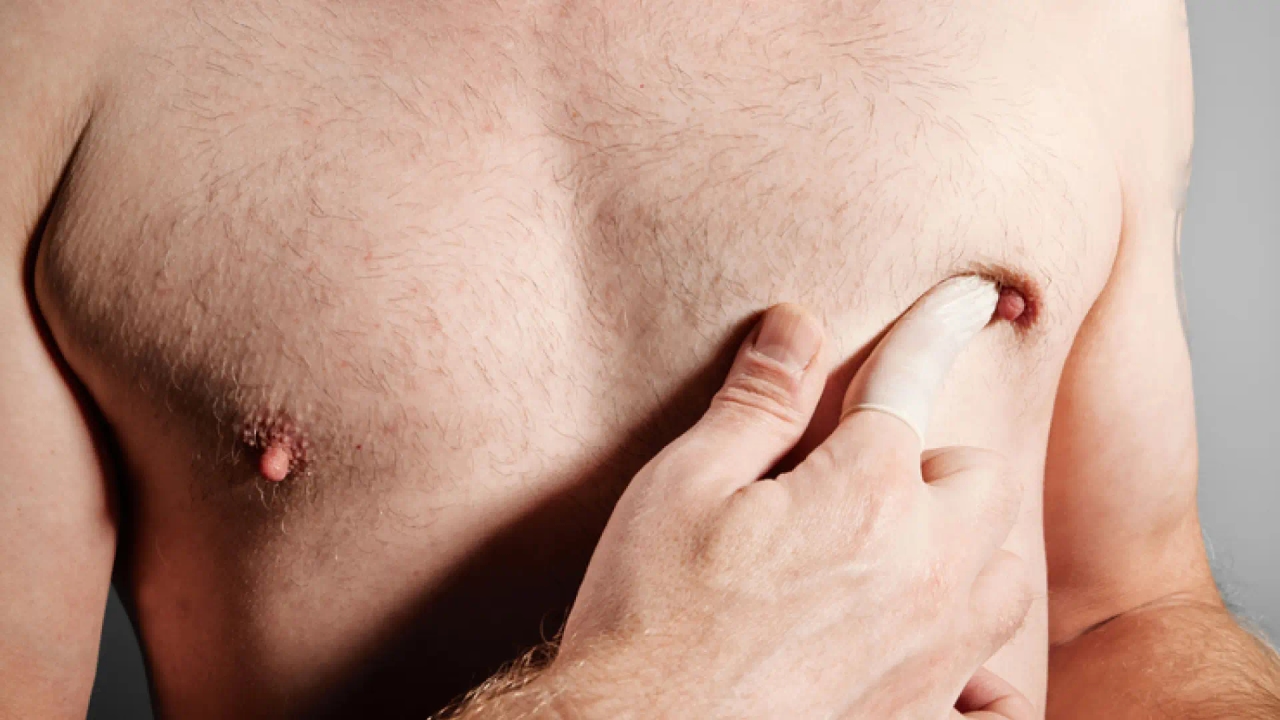Men with breast cancer urge self-examination to avoid late diagnosis

The first "Information Conference on Breast Cancer in Men" was held last month in Seville. A pioneering event organized by the INVI Association in collaboration with the Andalusian Society of Medical Oncology (SAOM) and the Virgen Macarena University Hospital in Seville. Chema Garcia Sánchez is 48 years old and a mastectomized man whose breast cancer forced him (a former truck driver) to leave the road and head off into the unknown.
Male breast cancer is a largely hidden reality. It exists, but it generally remains hidden. This is not the case for Chema Garcia Sánchez, a 48-year-old mastectomized truck driver whose breast cancer forced him off the road and into an unknown direction.
Chema is committed to raising awareness about male breast cancer and is responsible for the patient area of the INVI Association, the first in Spain to bring together men with breast cancer. "I do everything in my power to raise awareness about male breast cancer , because even my friends have told me: 'A man can't have that,'" he said in an interview with Servimedia.
In Spain, men account for approximately 2% of all breast cancer cases, equivalent to more than 1,000 diagnoses annually. According to the Spanish Society of Senology and Breast Pathology (SESPM), eight out of 10 cases in men are diagnosed in late stages, requiring more aggressive treatment and reducing the chances of survival. Men are 49% more likely than women to be diagnosed in advanced stages . Furthermore, between 15 and 20% of male patients have a direct family history of breast or ovarian cancer.
The diagnosis
Chema is part of that group of affected men. “In the summer of 2022, my right nipple retracted, and I noticed a lump. So I went to the dermatology office, and they sent me for an ultrasound, where the radiologist suspected breast cancer. They did a biopsy, and the suspicion was confirmed,” he explained. He underwent surgery on October 19, 2022, World Breast Cancer Day, with a mastectomy and lymphadenectomy, as the sentinel lymph node was affected.
Throughout the process, he had to face unexpected situations and overcome emotional and social barriers. “The strangest thing of all was walking into a pink room in a woman's nightgown,” he recounted. “At least they gave me a room to myself just because I'm a man. They really did everything they could to make me feel comfortable.” After 12 chemotherapy sessions and 15 radiation therapy sessions, the cancer went into remission. “I'm currently receiving hormone treatment and everything is going well, but I'm always afraid the cancer will come back.”
The disease has marked a turning point in his life. “I have n't been able to return to work as a truck driver, as the after-effects on my arm make it impossible to continue driving a truck.” When he shared the diagnosis with those closest to him, not everyone understood. “I remember having to send a photo of a friend I hadn't seen in a while in the hospital bed, bandaged and with my drains in.”
Chema's testimony reflects the lack of information and the stigma that still surround male breast cancer. Many patients explain that, when they communicate their diagnosis, they face disbelief or ignorance from family and friends. The INVI Association has begun developing awareness campaigns and informational materials specifically for men, with the aim of breaking taboos and encouraging self-examination as part of Breast Cancer Awareness Month.
Making the invisible visibleMale breast cancer exists and can affect anyone, so we need to self-examine and, if we notice anything in the breast area, see a doctor. Only then will we have an early diagnosis," Chema insisted. The experts emphasized the need not to rule out the disease in men if symptoms are suspicious and called for men to be included in clinical trials.
Dr. Luis de la Cruz, head of Medical Oncology at HUV Macarena, emphasized that "breast cancer in men requires more scientific knowledge and greater social and healthcare attention to mitigate its impact." Professionals emphasized the importance of adapting care and follow-up protocols to consider the clinical and psychosocial characteristics of male patients.
Furthermore, oncology experts stressed the importance of specialists not ruling out the disease in men when symptoms are suspected, while also urging the urgent inclusion of men in clinical trials.
The vice president of the Andalusian Society of Medical Oncology, María Carmen Beato, estimated that "low-incidence neoplasias account for approximately 24% of our diagnoses, placing them very close in incidence to colorectal cancer, the most common cancer in our setting." Specialists agreed that the low prevalence should not be a reason to neglect research and specific care. "Paradoxically, rare cancers are not rare at all," Beato noted.
Chema emphasized that the treatment received is no different than that given to women and that men should be aware of and self-examine to avoid late diagnoses. "Of course we have to change things, and I know it's very difficult because we are a small percentage of men with breast cancer, so we have to make the invisible visible," he concluded.
20minutos




